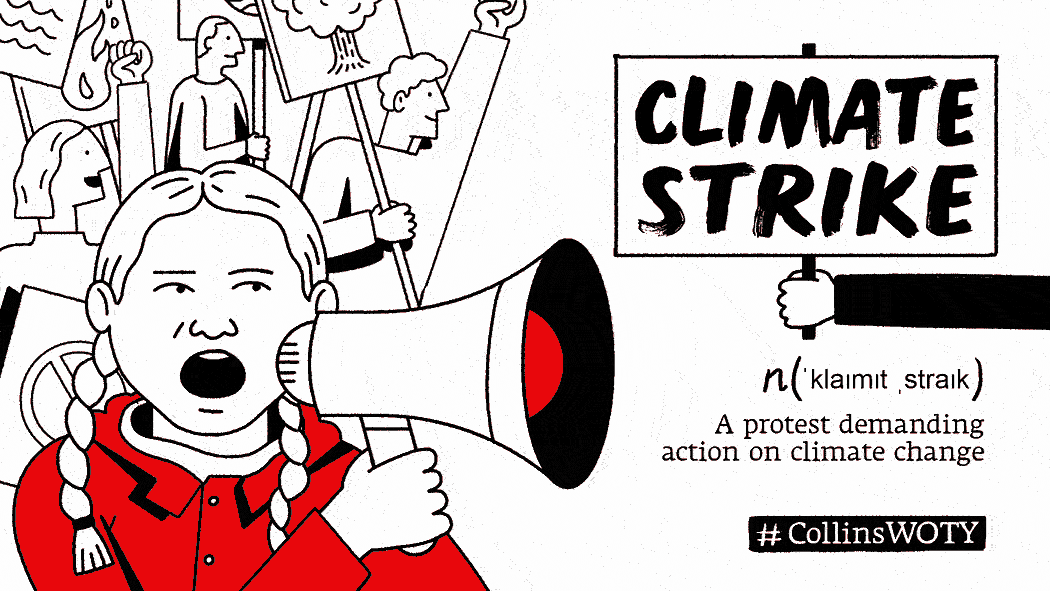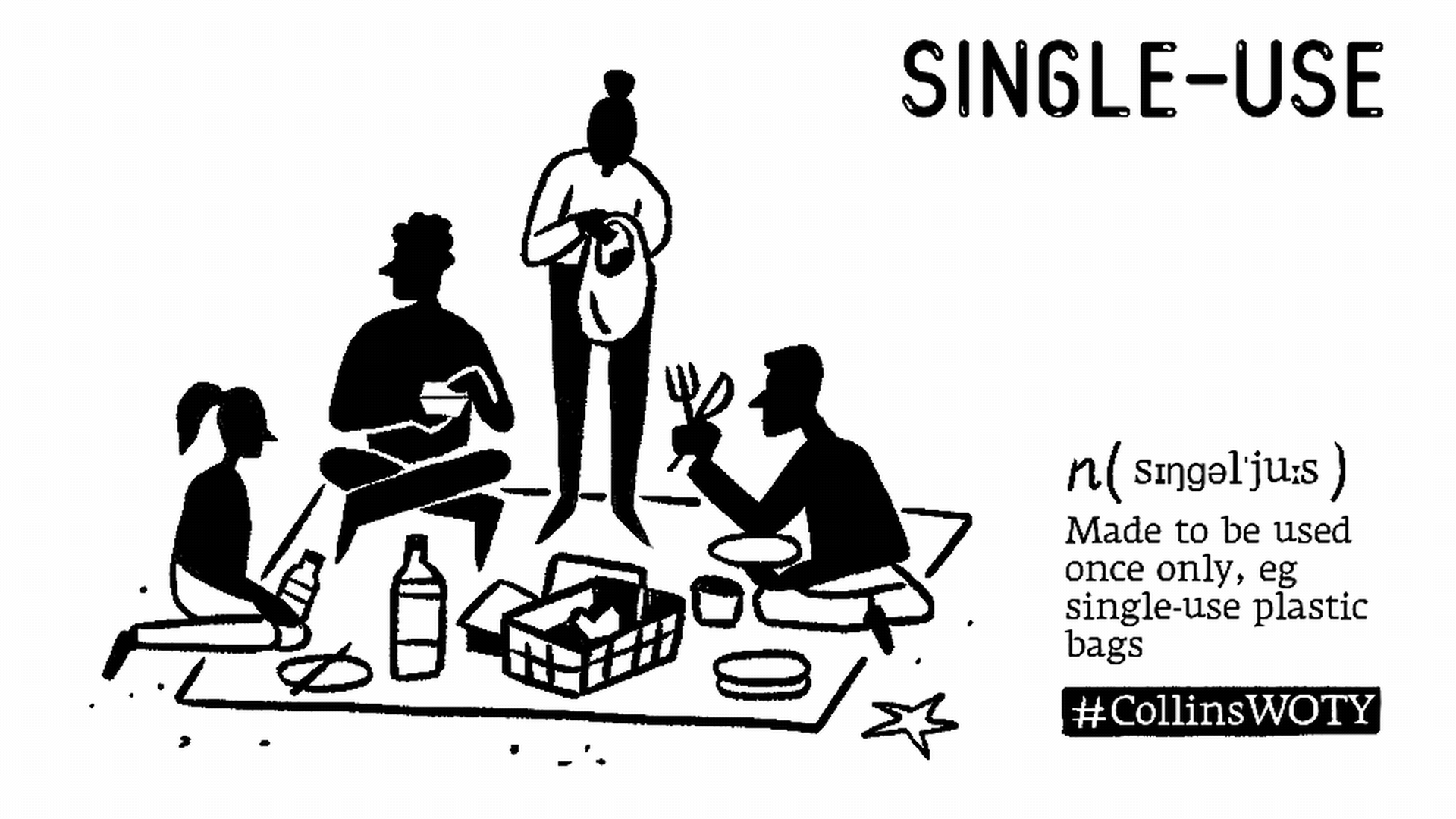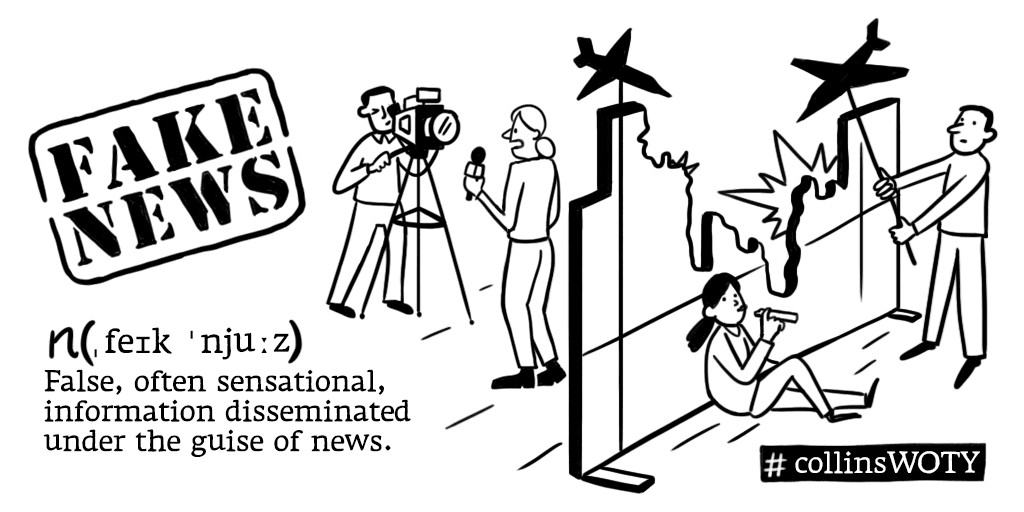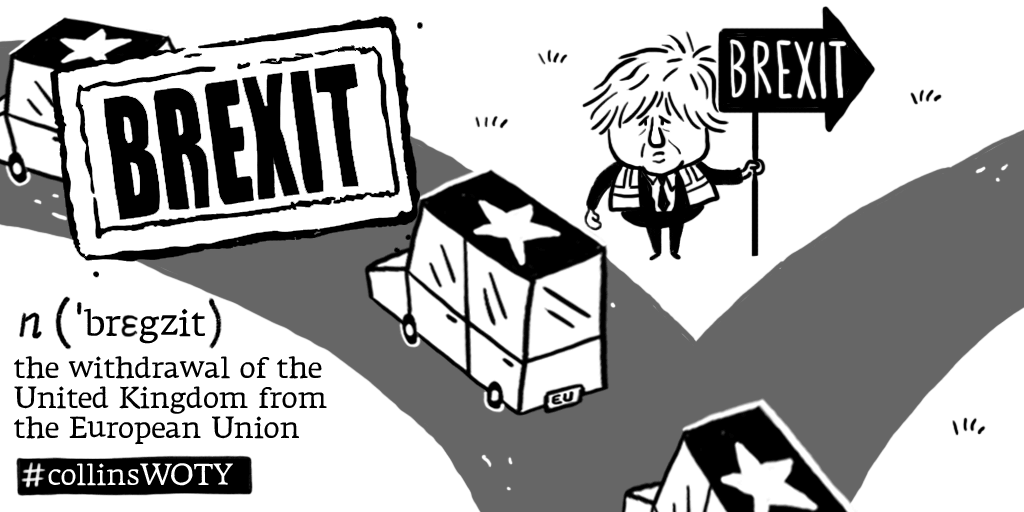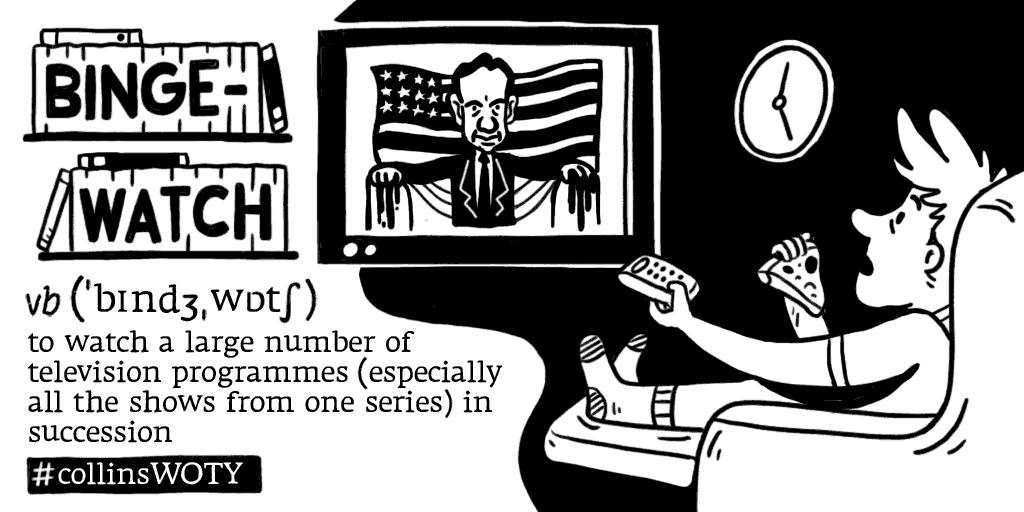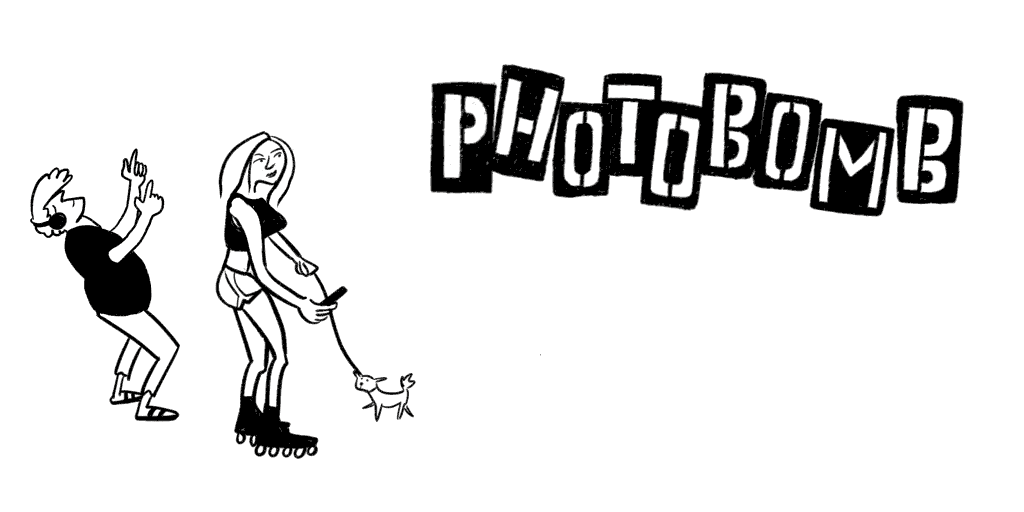Collins' Word of the Year 2024
In 2024, we're soooooo brat! Brat was the title of Charlie XCX's summer album, and captures a confident, independent and hedonistic attitude. Kamala had a "brat summer" and before you knew it, we were all dying our hair brat green and not giving damn what anyone thought about it. It reached the top spot ahead of 'anti-tourism', 'looksmaxxing' and 'brainrot', to name but a few. For the full list, head to the HarperCollins #WOTY page.

Collins' Word of the Year 2023
2023 marked Scriberia's tenth year as Collins' creative partner for their Word of the Year campaign. And it was the turn of 'AI' to take the top spot ahead of 'Bazball', 'Deinfluencing', 'Debanking' and more. Of course, none of us really know where AI is taking us, but we think it's a slightly more optimistic word than the 'Permacrisis' and 'Lockdown' of previous years! Could things be looking up?
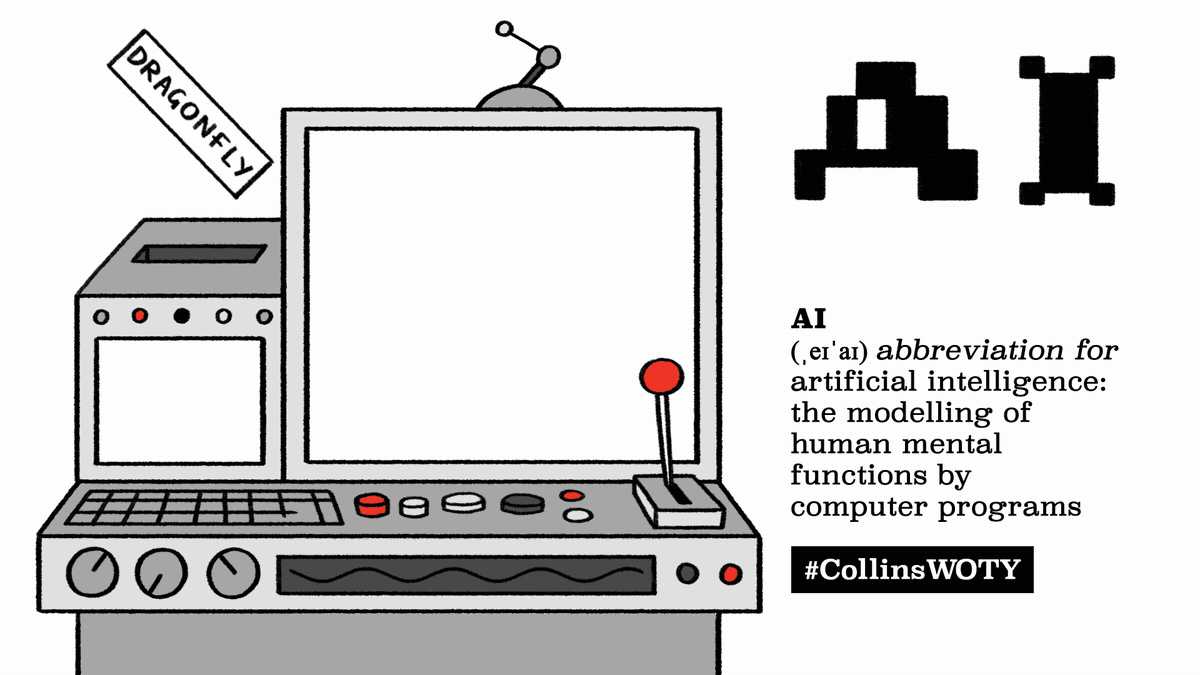
Collins' Word of the Year 2022
‘Permacrisis’, a term that describes ‘an extended period of instability and insecurity’, was named Collins Word of the Year 2022. (It really has been one "omnishambles" after another hasn't it - see Collins' WOTY 2021).
Depressingly, it triumphed amongst other contenders including: Partygate, sportswashing, warm banks and Kyiv. And in a tradition almost as firm for Scriberians as fancy dress at the Christmas party, illustrators and animators combined their wits to visualise each one and create a collection of animated social media assets for Collins' to share with the world.
In 2022, six of Collins’ ten shortlisted words of the year, were brand new to the dictionary.
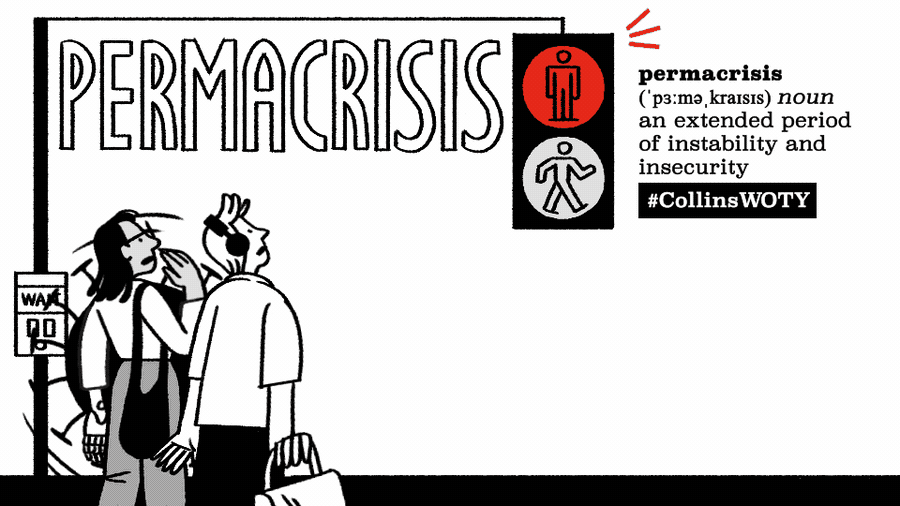
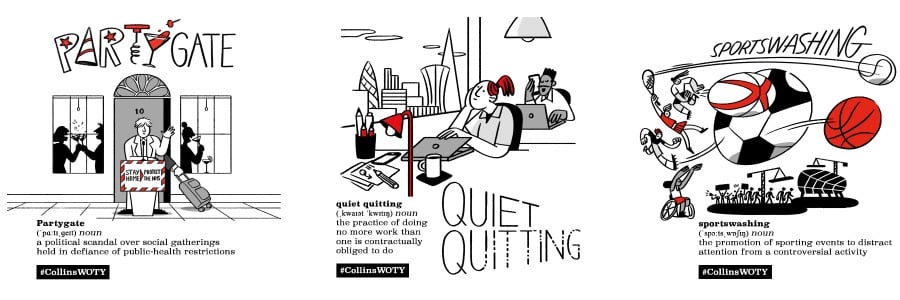
Collins' Word of the Year 2021
In a welcome break from disaster related words of the year, NFT, the abbreviation of non-fungible token clinched the title in 2021. Its “meteoric” rise in usage was up 11,000% in a year. Any digital creation can become an NFT, with the term referring to a certificate of ownership, registered on a blockchain, or digital ledger of transactions. The most valuable NFT to date is a collage by digital artist Beeple, which sold for £50.3m at Christie’s in March that year.
Collins defined NFT as “a unique digital certificate, registered in a blockchain, that is used to record ownership of an asset such as an artwork or a collectible”; its lexicographers, who monitor the 4.5bn-word Collins Corpus to choose their word of the year, said they went for NFT because it demonstrates a “unique technicolour collision of art, technology and commerce” that has “broken through the Covid noise” to become ubiquitous.
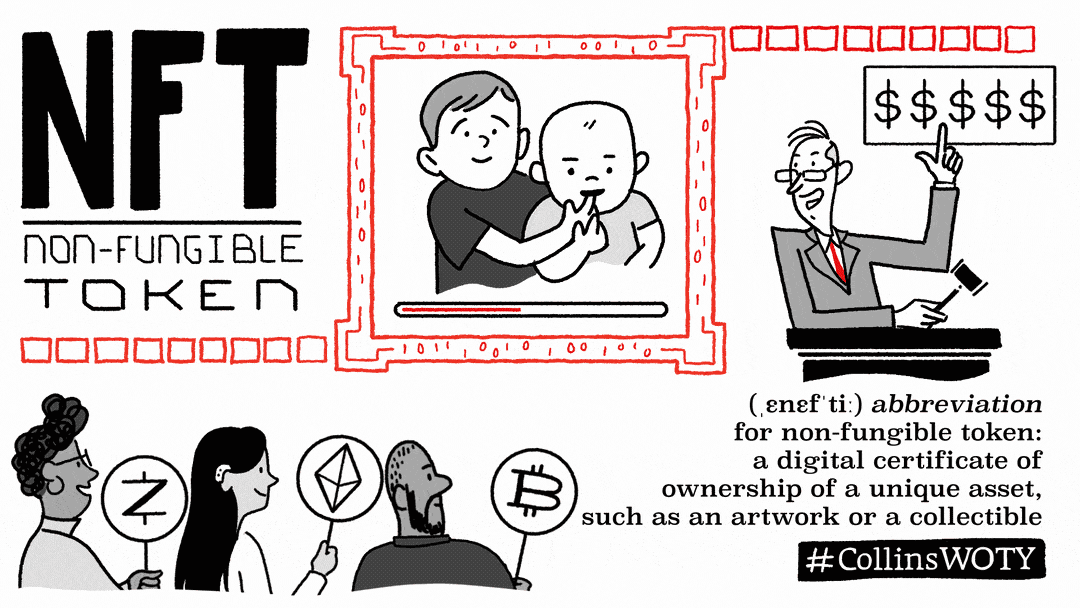
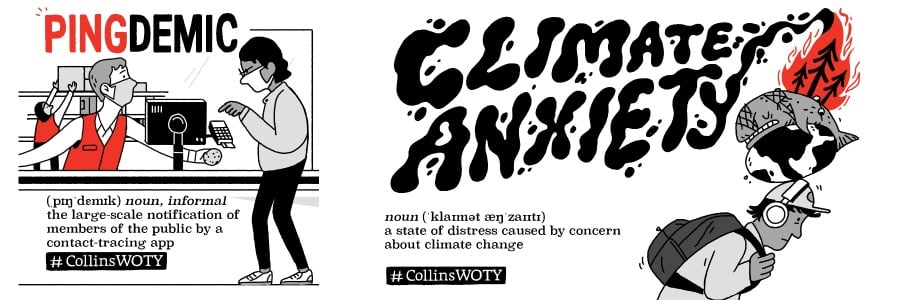
Other contenders in 2021, included "Pingdemic": the large-scale notification of members of the public by a Covid-19 contact-tracing app; "Climate anxiety": the state of distress caused by concern about climate change; "Cheugy", meaning no longer cool; "double-vaxxed", having received two vaccinations against a disease; and "Regencycore"; a style of dress inspired by clothes worn in high society during the Regency period.
Collins' Word of the Year 2020
The competition for the 2020 Word of the Year was tight, because our language as well as our lives changed drastically in the wake of the pandemic. But, with over a quarter of a million usages during 2020, it was 'lockdown' that finally clinched the top spot. According to Collins, "Our lexicographers chose ‘lockdown’ as Word of the Year because it is a unifying experience for billions of people across the world."
But how do you set about capturing hundreds of thousands of people's experiences of lockdown in one simple visual. This was the challenge facing our animation team. The result has proven to be some of our niftiest pieces of visual thinking of all time. 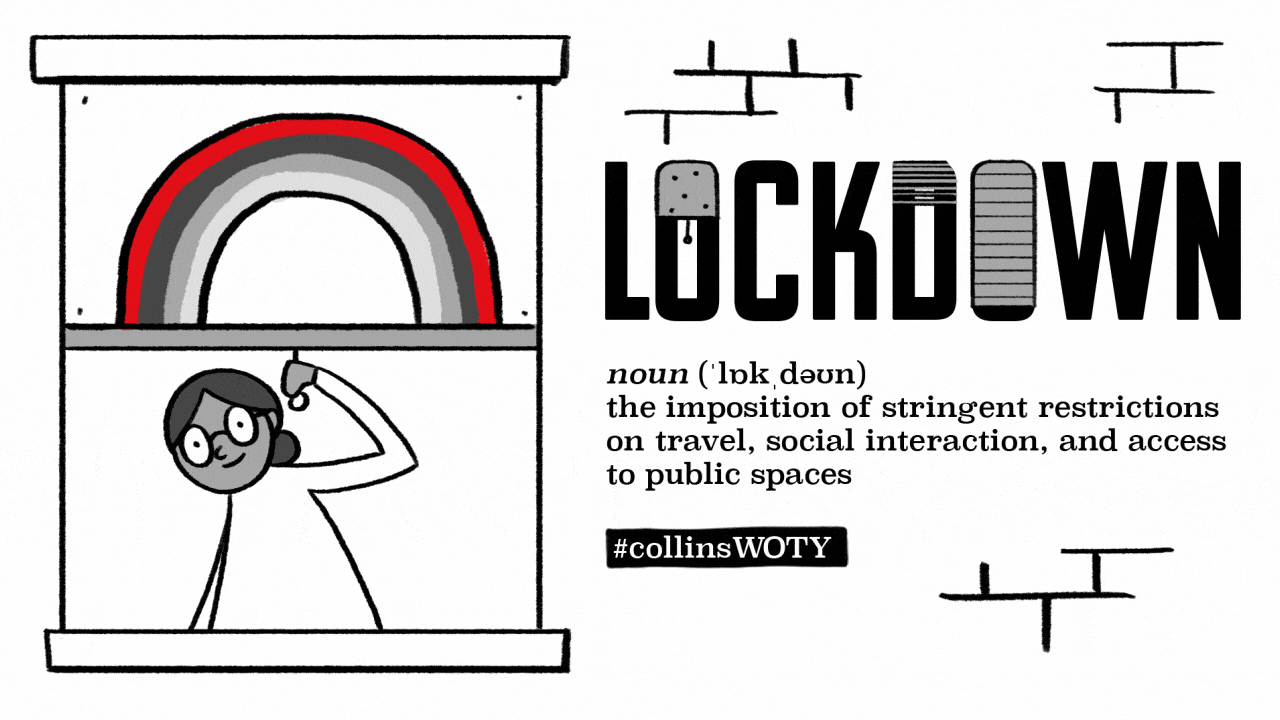
Our team paired dictionary definitions with visuals that give each word its real-world context. And, as is always the case when we work with Collins, they were all in favour of us finding the humour in what had been a very difficult year.
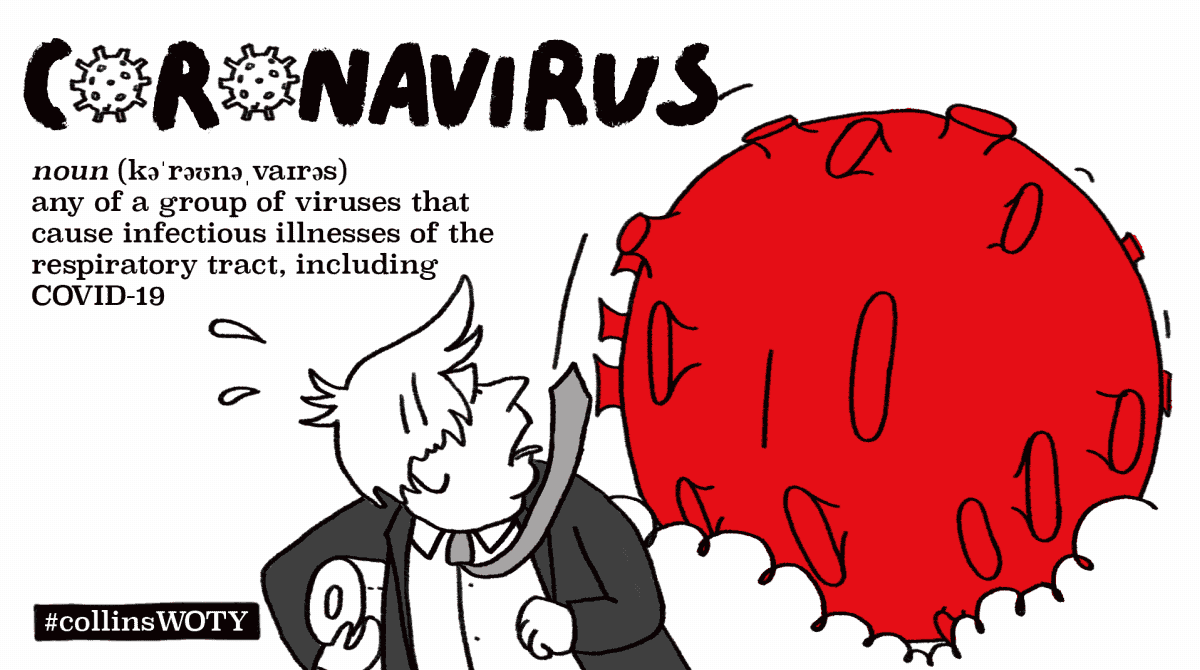
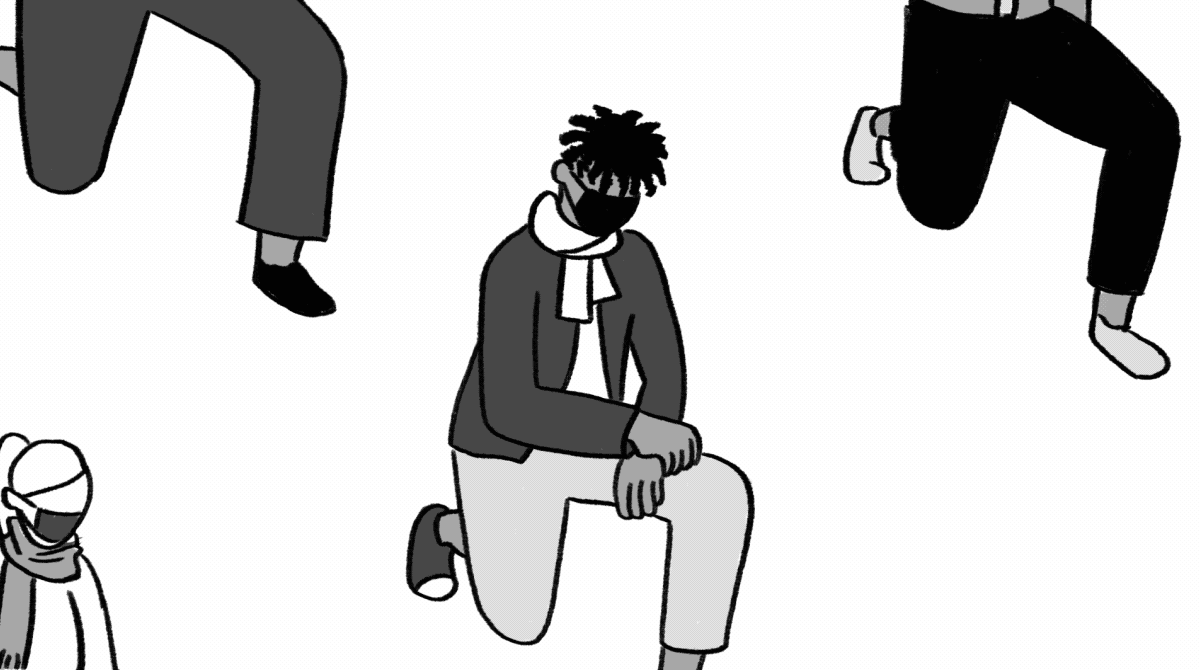
The finished animations equip Collins with a set of engaging and shareable assets, showing the stories that lurk behind our language.
"Scriberia's creative input really helps to bring the campaign to life and the illustrations play a central role in our annual campaign," says Rebecca Jones, Head of Collins Dictionary Marketing & Publicity. "Scriberia brings consistency to the campaign in look and feel and the illustrations provide really valuable assets that are widely shared on social media and used in live broadcast interview."
Collins Dictionary’s lexicographers monitor the 9.5 billion-word Collins Corpus and create the annual list of new and notable words that reflect an ever-evolving culture and the preoccupations of those who use it.
‘Climate strike’ was first registered in November 2015 when the first event to be so named took place to coincide with the UN Climate Change Conference in Paris, but it is over the last year that ‘climate strikes’ have spread and become a frequent reality in many of the world’s largest cities.
Collins’ lexicographers observed a one-hundredfold increase in its usage in 2019, the largest increase noted of any word on the list.
